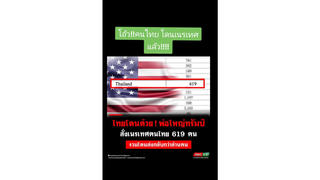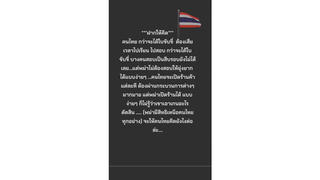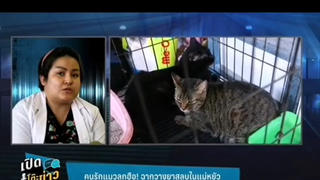
Does H. pylori infection require a six-month course of medication? No, that's not true: Typically, H. pylori treatment plans require patients to take multiple drugs for 14 days.
The claim appeared in a video (archived here), published on TikTok on September 15, 2023, under the title (translated from Thai by Lead Stories staff) "Frequent stomachaches from H. pylori infection are a risk for cancer." It opened:
Patients with H. pylori infection need to take antibiotics for six months.
This is what the post looked like on TikTok at the time of writing:
(Source: TikTok screenshot taken on Mon Oct 10 06:07:26 2023 PDT)
Based on her personal experience with Helicobacter pylori (H. pylori) infection, the anchorwoman shown in the video, Pitchayatan Chanput, a popular TV personality also known as Nong Bright, co-host of the TV morning news program "Rueng Lao Chao Nee," claims that patients must undergo a six-month antibiotic treatment. The typical treatment, though, is 14 days.
On September 18, 2023, RedHill Biopharma company announced that the U.S. Food and Drug Administration (FDA) approved a supplemental new drug application (sNDA), Talicia, to treat H. pylori infections in adults. The new dosing regimen now recommends taking the medication three times daily (morning, lunch, and dinner), spaced at least 4 hours apart, and with food for 14 days - previously, the drug required administration every eight hours.
H. pylori infection, a bacterial infection of the stomach that is very common worldwide, is typically transmitted directly from person to person. The most prevalent symptom following infection is a burning abdominal pain resulting from peptic and gastric ulcers. Complications associated with H. pylori do include ulcers and certain types of stomach cancer, according to the Mayo Clinic website.
If the patients have no symptoms, there is no need for treatment. However, nonsteroidal anti-inflammatory drugs should be avoided if the patients have been diagnosed with H. pylori, as they can elevate the chances of ulcer development.
Current treatments for H. pylori infection combine several drugs: antibiotics, proton pump inhibitors (PPIs), H2-receptor antagonists, clarithromycin, dual therapy, triple therapy, and sequential therapy. They are usually taken for 14 days.
The newest pharmaceutical, Talicia (prescription Information here), is the only FDA-approved rifabutin-based therapy to eradicate H. pylori. It combines a proton pump inhibitor (omeprazole 10mg) and two antibiotics (rifabutin 12.5mg and amoxicillin 250mg) in a fixed-dose oral capsule for 14 days.











